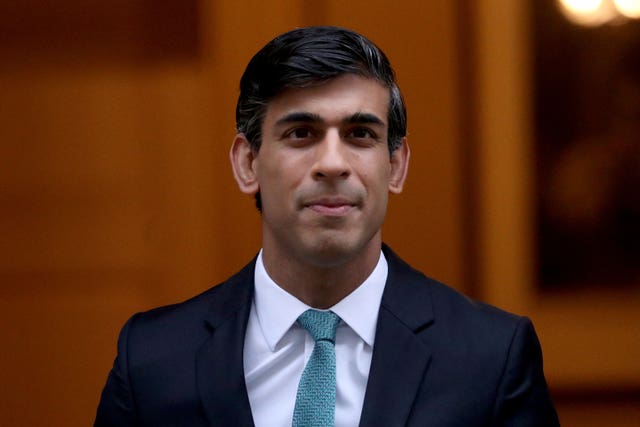
Iain Dale 7pm - 10pm
19 February 2021, 06:44

Mel Stride, chairman of the Treasury Committee, said it is important the Chancellor ‘looks at targeting wherever possible’ further Covid job support.
Rishi Sunak should “definitely not” increase taxes at the Budget but must outline his “road map” to pay back pandemic borrowing, according to a senior Conservative MP.
Mel Stride, chairman of the Treasury Committee, also said it is important the Chancellor “looks at targeting wherever possible” further coronavirus job support and “not just blanket universal extensions” to existing schemes when he delivers his speech on March 3.
But in the “more medium term” Mr Stride said “there is going to be a very large, or there is already a very large fiscal hole”, noting the Conservatives’ manifesto commitment not to raise the rate of income tax, VAT or National Insurance “doesn’t refer to the thresholds”.
Speaking to the PA news agency, he said: “I’ve always taken the view that I think these are such exceptional times, that I think the Chancellor should be forgiven if ultimately he decides that there are some manifesto commitments and the commitment for example to 0.7% for international aid has been broken, so I think he could be forgiven under these exceptional circumstances to look at every area, I don’t think anything should be off the table.”
The MP for Central Devon said the third lockdown and second wave of the pandemic meant the Chancellor was “now having to continue to focus on the bridge between the crisis and the recovery”.
He said: “I expect much of his Budget is going to be about perhaps extending existing schemes.
“I think it’s very important though that it’s not just blanket universal extensions, that it’s important that he looks at targeting wherever possible in terms of further job support.”
He added: “We would expect the economy to start coming back quite strongly this year, but there will be areas of the economy that grow faster and are in a better place than others.
“So if you look at international travel and airlines for example, they’re likely to be impacted for longer unfortunately than other areas of the economy, so I want to see some kind of targeting.
“The second thing is now is definitely not the time for tax rises because what we’ve got to see is an economy that’s being stoked up, not damped down by short-term tax rises.
“But at the same time, I think he has to start leaning into telegraphing the fact that the Government is very serious about ultimately bringing down the deficit and getting on top of the public finances.”

He urged the Chancellor to set out a “road map” in his forthcoming Budget about how “we are ultimately going to pay back a lot of this money that we’ve been borrowing” amid the ongoing pandemic.
Mr Stride said an extension “something of the order of three months” to the Coronavirus Job Retention Scheme (furlough), currently due to end on April 30, would be a “sensible period to give employers a reasonable period of certainty”.
There was, he added, a “strong case for extending” the £20 weekly uplift to Universal Credit, adding the “committee’s view was that the Government should seriously consider” this.
With Boris Johnson due to set out his “road map” out of lockdown next Monday (February 22), Mr Stride said he wanted to see a “clear set of milestones as to what can be unlocked and on what targets have to be hit in order for that unlocking to occur”.
There had to date been, he said, “a lot of very thorough modelling on the epidemiology, albeit subject to great uncertainty, but on the economic side of the equation we’ve had very little indeed”.
On questions like the economic impacts of the various lockdown measures, he said: “I think it would have been a great help if the Government had come forward with this kind of modelling and analysis much earlier and in fact we’ve been calling for it for some time.”
He added: “I think it has been an omission not to have brought in this kind of analysis much earlier and we haven’t seen it yet, so we’re working on the assumption we’re going to see some of this stuff on the 22nd, we may or may not… there’s an area here on the economic side where there has been a paucity of publicly available information.”